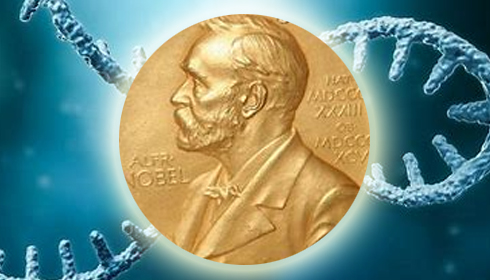
MicroRNA Gene Regulation Breakthrough Wins Nobel Prize for Medicine 2024
The Nobel Assembly at Karolinska Institutet has jointly awarded Victor Ambros and Gary Ruvkun the 2024 Nobel Prize in Physiology or Medicine for their discovery of microRNA, a fundamental mechanism in post-transcriptional gene control. This discovery significantly advances our understanding of gene activity regulation, revolutionizing biological sciences and paving the way for future research into intricate biological processes.
Our chromosomes store genetic information in their DNA, like a life instruction manual. Although all cells have the same genetic instructions, different types of cells, such as muscle, neurone, and intestine cells, have distinct features. Gene regulation, which enables the expression of certain genes in each cell type, is the key to this diversity. Ambros and Ruvkun's discovery of microRNA introduces a previously unknown regulatory mechanism, expanding the scope of this process.
Victor Ambros and Gary Ruvkun conducted research on the nematode Caenorhabditis elegans (C. elegans), a model organism used to study tissue development in multicellular creatures. In the early 1990s, researchers investigated the genes lin-4 and lin-14, which control the timing of genetic program activation. They discovered that lin-4 is a negative regulator of lin-14, despite the fact that it lacks a typical protein-coding sequence. Ambros and Ruvkun discovered that lin-4 produces a small RNA molecule known as microRNA, which binds to the mRNA of lin-14 and inhibits protein formation.
This discovery was a game changer. Ambros and Ruvkun established that microRNAs function as posttranscriptional regulators, binding to complementary mRNA regions and preventing their translation into proteins. This study revealed a completely new layer of gene control that is conserved across species and essential for the development and function of multicellular creatures.
MicroRNAs serve an important role in fine-tuning gene expression, allowing cells to respond to environmental changes and producing the relevant proteins at the appropriate time. This degree of gene control is required for the proper functioning of cells and tissues, and alterations in microRNA activity can have serious implications, such as cancer, diabetes, and autoimmune disorders.
For instance, congenital hearing loss, ocular and skeletal issues, and even cancer syndromes like DICER1 have been associated with mutations in microRNA-coding genes. These circumstances highlight the significance of microRNAs in maintaining cellular equilibrium and preventing illness.
Many academics initially questioned Ambros and Ruvkun's findings, dismissing them as unique to C. elegans. However, Ruvkun's team found another conserved microRNA, let-7, in all animal species by 2000, demonstrating the significance of their findings. This discovery sparked global interest in microRNAs, leading to the discovery of over a thousand microRNAs in humans.
Their discovery has paved the way for new avenues of investigation into gene control processes, which bodes well for future medical advances. Understanding microRNAs may lead to novel therapeutics for genetic illnesses and cancer if they focus on the precise regulation of gene expression.
The 2024 Nobel Prize in Physiology or Medicine recognizes Ambros and Ruvkun's revolutionary contributions to biology, emphasizing the importance of fundamental research in comprehending the complexity of life at the molecular level.